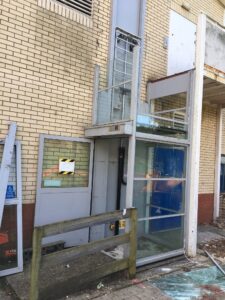Building company fined after worker struck by telehandler
Construction company, Cheshire Oak Structures Limited, has been fined after a young employee suffered injuries when assisting in moving a load of timber with a telehandler during a garage construction project at North Crofts Road, Nantwich, Cheshire.
Crewe Magistrates’ Court heard how on, 16 August 2018, Mr Jordan Beck was one of two operatives assisting with the transportation of roof rafters along a narrow road using a telehandler, which was being operated by the company director. The worker was helping to guide the load on the telehandler when he was struck by it, which ran over his lower leg, resulting in serious injuries to his foot and ankle.
An investigation by the Health and Safety Executive (HSE) found that Cheshire Oak Structures Limited failed to properly plan the work and therefore failed to ensure that suitable measures were in place to protect workers from risks when using a telehandler.
Cheshire Oak Structures Limited of Darland House, 44 Winnington Hill, Northwich, Cheshire pleaded guilty breaching Section 2(1) of the Health & Safety at Work etc Act 1974. The company was fined £30,000 and ordered to pay costs of £2,497.80.
Speaking after the hearing, HSE inspector Adewole Aderibigbe said: “This injury was easily preventable. The risks associated with the task should have been identified and suitable control measures implemented to minimise those risks.
“It is vital that employers properly plan their work activities to ensure that their employees are adequately protected whilst at work.”
Notes to Editors:
- The Health and Safety Executive (HSE) is Britain’s national regulator for workplace health and safety. We prevent work-related death, injury and ill health through regulatory actions that range from influencing behaviours across whole industry sectors through to targeted interventions on individual businesses. These activities are supported by globally recognised scientific expertise. www.hse.gov.uk
- More about the legislation referred to in this case can be found at: www.legislation.gov.uk/
- HSE news releases are available at http://press.hse.gov.uk
The post Building company fined after worker struck by telehandler appeared first on HSE Media Centre.
